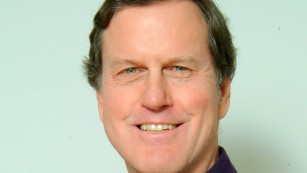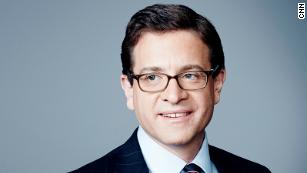When President Donald Trump revealed that he doesn't know why the Civil War was fought, or at least figures it could have been averted by the kind of deal-making he supposedly excels at, it was revealing in ways beyond the ones easy to glean.
Yet this sort of thing should no longer surprise us from this man. He doesn't read and lacks curiosity, but that's hardly rare among human beings. A college teacher friend of mine the other day noted that no one in his class could name who was president in the 1980s, nor, upon being told who it was, could they name his political party. People like this don't mysteriously develop an interest in civics after college. Sometimes they become president.
Then there's Trump's question: "Why could that one not have been worked out?" Of course this implies that the North should have cut ever more deals with the South to continue enslaving black people. But Trump either 1) doesn't know enough about the Civil War to know that (upon which, see above), or 2) doesn't think the slavery issue should have been a priority.
Upon which we have two more choices. One is that Trump has engaged the literature suggesting that slavery would have evaporated in the United States on its own accord because of economic reasons. Again, however, see above -- which means that Trump doesn't "get" race.
His take on the Civil War is reminiscent of Trent Lott's jolly surmise during a commemorative event for Strom Thurmond that it was too bad "Ol' Strom" never became president. Lott, unaware the nation would hear what he said, revealed himself as just not thinking of little things like the civil rights movement as a priority. Trump is similar -- but we knew that, too, and it won't change.
Trump's neonate perspective on the Civil War reveals more than Trump's lack of book smarts or interest in "the African-Americans." Rather, Trump's ignorance about something as fundamental to our nation's history as the Civil War marks a profound disconnection from anything but his mundane self. It is this that reveals him as tragically unfit for his office.
He might claim an interest in history, but it is only on the level of a gee-whiz hero worship of the colorful exploits of an alpha male ex-soldier like Andrew Jackson. This is ultimately a continuation of a little boy's fondness for the likes of Davy Crockett (which Trump may well have had). Trump misses, for example, that Jackson would likely have despised him for his origins, his wealth and his personal conduct.
Meanwhile, Trump's lack of interest in even the basic currents of what happened in the past shows a disconnection from information beyond the casual and immediate. Here is the president who refuses to engage long-form policy papers, prefers television to print, and Twitter to thought.
As we see from his angered bafflement at sustained questioning from a CBS interviewer about things like his wiretapping claims, Trump is unfamiliar with sequential, extended argument -- i.e. concentration. People who can't focus shouldn't run nations.
A leader ideally should not be an outright nerd: governing doesn't allow the time to nurture the geekly needs. However, an effective leader must harbor a certain concentration upon something, be about something. Even the low-key George Bush père, lacking "the vision thing," was about statecraft and governance. His son was about serving his God. Bill Clinton was about public service in a Kennedyite vein. Obama was about healing and compromise in the name of moving ahead.
All of those themes require concentration and planning. Trump, however, has concentrated upon nothing but enriching himself. He eagerly watches and blabs about the tinny procession of events and sound bites going by on his television screens, but is sustainedly interested in nothing. He has no concerns, other than a sense of America as a macrocosm of himself, which therefore must be defended at all costs. But he knows too little about, well, anything to understand that America is infinitely more complex than he is.
This shouldn't have happened. One hears that to point out things like this is smug, which suggests that the analysis is mistaken in some way. One wonders, though, just what the evidence is that Trump is capable of concentration. I guess we should remember that when it comes to the race question in the 19th century, at least Trump has acknowledged the great things that the magnificently long-lived Frederick Douglass has been up to.
********************************************
Historians: Trump gets Andrew Jackson and Civil War totally wrong
Updated 1510 GMT (2310 HKT) May 2, 2017
President Donald Trump generated headlines this week when he discussed the origins of the Civil War in an interview with Washington Examiner columnist and CNN contributor Salena Zito. The president asked: "Why was there the Civil War? Why could that one not have been worked out?" Trump compared his 2016 presidential campaign to that of President Andrew Jackson, whose home and grave he visited earlier this year. "I mean, had Andrew Jackson been a little later you wouldn't have had the Civil War....he had a big heart. He was really angry that he saw what was happening with regard to the Civil War, he said 'There's no reason for this.'"
Amy Greenberg: Mr. President, a fifth grader could have answered your question
What
most dismays -- okay, angers -- me about President Trump's statements
on Andrew Jackson being able to prevent the Civil War is his profound
historical ignorance. Ask any fifth grader, "Why did the Civil War
happen?" That child can give you an answer. That answer may vary
depending on the section of the country where you ask the question, but
he or she will have a clear answer.
How
dare Donald Trump state that, "People don't ask that question -- but
why was there a Civil War? Why could that one not have been worked out?"
Historians have been asking this since 1861. Elementary school classes
debate it.
One person who
never asked this question, of course, was Andrew Jackson, because he
died in 1845. Nor is there any evidence, whatsoever, that he "saw it
coming." Indeed in 1844 he pushed to have the presumptive Democratic
presidential nominee, Martin Van Buren, dropped from the ticket after
Van Buren opposed annexing Texas out of a belief that it would
exacerbate sectional tensions. Jackson preferred James K. Polk, an avid
expansionist, and like himself, a slave holder. Had Jackson seen the
Civil War coming, would he have deliberately made tensions between the
North and South worse?
Amy
S. Greenberg is Edwin Erle Sparks Professor of History at Penn State
University. An award-winning author of four books, including "A Wicked War:
Polk, Clay, Lincoln and the 1846 US Invasion of Mexico" (Vintage Books,
2013), she is writing a biography of First Lady Sarah Childress Polk,
to be published by Knopf in 2018.
--------------------------------------------------------------------------------
David Reynolds: Andrew Jackson would have defended slavery's expansion, Mr. President
Andrew
Jackson, a Tennessee slaveholder who sent thousands of Native Americans
to the West on the Trail of Tears, refused to take a moral position on
slavery expansion, which in the 1850s led to plans for a U.
S.-controlled slave empire to include Cuba and parts of Central and
South America. Had Jackson, who died in 1845, been around in the 1850s,
doubtless he would have defended slavery's expansion. The only deal
Andrew Jackson might have offered the South to prevent the war would
have been to allow slavery to persist and spread.
It
took the firm-principled Abraham Lincoln, who was antislavery to the
core, to accept civil war rather than allow the spread of slavery. When
Lincoln assumed the presidency in 1861, seven southern states had left
the Union; four more soon followed. Lincoln knew that to tolerate
secession spelled the end of the United States—"the last best hope on
earth," as he called it.
He
carefully studied how national crises had been handled by previous
presidents, including Andrew Jackson, who had once successfully used
negotiation and threats of force to prevent South Carolina from seceding
over a tariff issue. Lincoln used Jackson's carrot-and-stick
technique—and much more, including offers of big money--to appease the
South, but slavery was so deeply entrenched that Lincoln was sucked into
a four-year civil war. The deaths of 750,000 Americans was the tragic
price of abolishing slavery and opening the way to civil rights.
David
S. Reynolds is a Distinguished Professor at the Graduate Center of the
City University of New York. He is the author or editor of 15 books,
including "Waking Giant: America in the Age of Jackson."
--------------------------------------------------------------------------------
Peniel Joseph: No one man, elected official, or historical event could have prevented the Civil War
President
Trump's assertion that Andrew Jackson, the ornery and uncompromising
soldier-statesman who opened the White House to ordinary white male
suffrage and made a reputation as a pacifier of Native American
populations through extraordinary campaigns of violence, is as
incredible as it is ahistorical.
Jackson died almost sixteen years before the outbreak of the Civil War.
But in truth, no one man, elected official, or historical event could
have prevented the bloodiest war in American history.
The Civil War's origins were rooted in the political and economic
consequences of racial slavery, a system that produced horrific human
costs even as it offered undreamed of wealth for a young nation. The war
exploded after decades of sectional disputes, legal battles, and
full-blown national crises over the fate of both enslaved blacks and
American democracy.
President Trump's political
hero, Andrew Jackson, possessed neither the temperament nor ability to
stop a war that, for all its carnage, immeasurably transformed the
nation and brought us toward a more perfect union. This is not only
wishful thinking on his part, but dangerous in its distortion of the
signal most enduring conflict in our nation's history and in its willful
ignorance about American history.
Peniel
Joseph is the Barbara Jordan Chair in Political Values and Ethics and
the founding director of the Center for the Study of Race and Democracy
at the LBJ School of Public Affairs at the University of Texas at
Austin, where he is also a professor of history.
--------------------------------------------------------------------------------
Julian Zelizer: Our president has shown no interest in the history of our nation, or his own office
The
Civil War was not a result of the nation lacking smart dealmakers -- it
was a product of the poisonous slave-holding economy in the South. It
is unclear that any president could have prevented this war.
Not
only did Jackson die long before Civil War started, which makes the
entire debate purely speculative, but as a slave-holder, it is also
likely that by 1861 Jackson could have been on the wrong side of history
and stood with the Confederacy. In addition, Trump overlooked what else
might never have happened if the war had been avoided: the end of
slavery. As the historian Jim Grossman said, "If one sees the Civil War as a war of liberation, which it was, then it shouldn't have been avoided."
Even more troublesome is the
simple fact that President Trump has shown no interest in the history of
our nation, including the presidency. It is too late for him to start
taking a deep dive into historiographic debates. He has consistently
played fast and loose with the facts, shown no interest in the past, and
he has seriously misrepresented some pretty basic issues, such as voter
fraud.
While there is
always room for speculation about counter-factuals, it should surprise
no one that many historians are not willing to give him the benefit of
the doubt that he is seriously thinking through these questions.
More
likely, this is part of a continued appeal to his base by using
President Jackson, a favorite for conservative populists -- appealing to
white working class voters with this famous strongman. This move is
particularly loaded when clumsily connected to the question of who or
what could have "saved" the nation from the Civil War.
Julian
Zelizer, a history and public affairs professor at Princeton University
and New America fellow, is the author of "The Fierce Urgency of Now:
Lyndon Johnson, Congress, and the Battle for the Great Society." He's
co-host of the "Politics & Polls" podcast.
-------------------------------------------------------------------------------
What Trump could learn from Andrew Jackson (1767-1845)
By David S. Reynolds
When President Donald Trump laid a wreath Wednesday at Andrew Jackson's grave in Nashville, he paid homage to a president whose mantle as a populist hero he is trying to wear. Does he deserve the honor?
There are, to be sure, similarities between Jackson and Trump.
Trump succeeding Barack Obama resembles Jackson taking over from John Quincy Adams. In both cases, a populist president followed a cerebral one. Adams, like Obama, enjoyed reading books. Adams graduated second in his class at Harvard and read widely on all kinds of subjects, from science to history. He engaged in careful discussion of political issues, as does Obama.
Jackson, by contrast, had little time for books -- so little, according to contemporary biographer James Parton, that the only book besides the Bible that Jackson read all the way through was "The Vicar of Wakefield," a novel by Oliver Goldsmith. Trump, likewise, prefers bullet points to books and tweets to discussion.
They also shared a near-obsession with the media. A curator at the Hermitage, Jackson's home, explained to Trump during his visit that Jackson subscribed to over a dozen newspapers and made notes on what he liked and what he disagreed with. One one editorial he found particularly irksome, Jackson drew a big black X, the curator said. "We know that feeling, we know that feeling," Trump responded.
Jackson anticipated today's anti-intellectualism, epitomized by Trump, who has -- among other things -- rejected the science behind climate change. His science denial was matched by Jackson, who, according to his private secretary Nicholas Trist, reportedly told a family member that he didn't believe the Earth was round.
But, like Trump, Jackson spoke the language of everyday Americans, who went delirious in his presence. When Jackson was elected to a second term in 1832 by a tremendous margin, a politician of the time said, "My opinion is that he may be President for life if he chooses."
People admired Jackson's fighting spirit, much as many today respond to the pugnacious side of Trump. A campaign slogan went, "John Quincy Adams who can write, Andrew Jackson who can fight."
Fight Jackson did. Not only was he a military hero, but he fought three duels. He went to his grave with a bullet lodged near his heart from a duel he had with someone who insulted his wife. His opponent shot first, inflicting the chest wound. Although Jackson was bleeding profusely under his coat, he fired back, killing his opponent. "I should have hit him," Jackson later boasted, "if he had shot me through the brain."
Another bullet, from a shootout in a Nashville tavern, was removed from Jackson's shoulder during his presidency. Jackson, when challenged, never backed down, like Trump, who told a reporter, "I always loved to fight ... all types of fights. ... Any kind of fight, I loved it, including physical."
Both Trump and Jackson traded on popular prejudices. If Trump's Muslim ban and crackdown on illegal immigration are extreme versions of previous conservative views, so Jackson's forced removal of the Southeastern Indians to the West took to an extreme the Indian program of former presidents.
Trump's goal of destroying the administrative state resembles Jackson's all-out assault on the institutions of his day, particularly the Bank of the United States, the Alexander Hamilton-founded central bank that held federal funds. Jackson removed funds from the central bank and distributed them to banks in the states, anticipating Trump's aim of stripping down the federal government.
Is Trump creating "an entirely new political movement" like "Jackson's populism," as Steve Bannon told The Hollywood Reporter?
For that to happen, Trump must have measurable policy successes that benefit many Americans, as Jackson did. Jackson managed to push through funding for massive internal improvements (the era's term for infrastructure) that modernized the nation. Just as importantly, Jackson put his firmness to good use when in 1832 he prevented South Carolina from seceding from the nation over a tariff dispute.
After visiting Jackson's home, however, Trump may also want to reflect on the fact that it was once the seat of a 1,000-acre cotton plantation worked by enslaved blacks. Jackson owned some 150 slaves at his death. The fact that Jackson was just one of 12 American presidents who owned slaves doesn't diminish the horror of the South's peculiar institution -- and the rancid racism that dominated America during the long period of Jim Crow. Jackson-type populism, which did not extend to African-Americans, should therefore stand as a stern warning for today's would-be populists not to retreat an inch on civil rights.
In Jackson's view, America was a union before the idea of states' rights ever arose. The Constitution's chief aim, he declared, was "to form a more perfect Union" -- an assertion that proved inspirational to someone later confronted with an even worse secession crisis: Abraham Lincoln, another president that Trump likes to mention.
Lincoln combined Jackson's blunt directness with a principled pursuit of justice that produced what was often called Lincoln's highest trait: honesty.
And that is how Trump can best keep alive the spirit of our finest presidents: by adding a dose of Lincoln to his love of Jackson. Fostering unity, not division; working for the interests of all Americans, not just one's political base; being honest, not inventing truth at will.
These qualities are what make for a true people's president.
-------------------------------------------------------------------------------
What Trump could learn from Andrew Jackson (1767-1845)
By David S. Reynolds
When President Donald Trump laid a wreath Wednesday at Andrew Jackson's grave in Nashville, he paid homage to a president whose mantle as a populist hero he is trying to wear. Does he deserve the honor?
There are, to be sure, similarities between Jackson and Trump.
Trump succeeding Barack Obama resembles Jackson taking over from John Quincy Adams. In both cases, a populist president followed a cerebral one. Adams, like Obama, enjoyed reading books. Adams graduated second in his class at Harvard and read widely on all kinds of subjects, from science to history. He engaged in careful discussion of political issues, as does Obama.
Jackson, by contrast, had little time for books -- so little, according to contemporary biographer James Parton, that the only book besides the Bible that Jackson read all the way through was "The Vicar of Wakefield," a novel by Oliver Goldsmith. Trump, likewise, prefers bullet points to books and tweets to discussion.
They also shared a near-obsession with the media. A curator at the Hermitage, Jackson's home, explained to Trump during his visit that Jackson subscribed to over a dozen newspapers and made notes on what he liked and what he disagreed with. One one editorial he found particularly irksome, Jackson drew a big black X, the curator said. "We know that feeling, we know that feeling," Trump responded.
Jackson anticipated today's anti-intellectualism, epitomized by Trump, who has -- among other things -- rejected the science behind climate change. His science denial was matched by Jackson, who, according to his private secretary Nicholas Trist, reportedly told a family member that he didn't believe the Earth was round.
But, like Trump, Jackson spoke the language of everyday Americans, who went delirious in his presence. When Jackson was elected to a second term in 1832 by a tremendous margin, a politician of the time said, "My opinion is that he may be President for life if he chooses."
People admired Jackson's fighting spirit, much as many today respond to the pugnacious side of Trump. A campaign slogan went, "John Quincy Adams who can write, Andrew Jackson who can fight."
Fight Jackson did. Not only was he a military hero, but he fought three duels. He went to his grave with a bullet lodged near his heart from a duel he had with someone who insulted his wife. His opponent shot first, inflicting the chest wound. Although Jackson was bleeding profusely under his coat, he fired back, killing his opponent. "I should have hit him," Jackson later boasted, "if he had shot me through the brain."
Another bullet, from a shootout in a Nashville tavern, was removed from Jackson's shoulder during his presidency. Jackson, when challenged, never backed down, like Trump, who told a reporter, "I always loved to fight ... all types of fights. ... Any kind of fight, I loved it, including physical."
Both Trump and Jackson traded on popular prejudices. If Trump's Muslim ban and crackdown on illegal immigration are extreme versions of previous conservative views, so Jackson's forced removal of the Southeastern Indians to the West took to an extreme the Indian program of former presidents.
Trump's goal of destroying the administrative state resembles Jackson's all-out assault on the institutions of his day, particularly the Bank of the United States, the Alexander Hamilton-founded central bank that held federal funds. Jackson removed funds from the central bank and distributed them to banks in the states, anticipating Trump's aim of stripping down the federal government.
Is Trump creating "an entirely new political movement" like "Jackson's populism," as Steve Bannon told The Hollywood Reporter?
For that to happen, Trump must have measurable policy successes that benefit many Americans, as Jackson did. Jackson managed to push through funding for massive internal improvements (the era's term for infrastructure) that modernized the nation. Just as importantly, Jackson put his firmness to good use when in 1832 he prevented South Carolina from seceding from the nation over a tariff dispute.
After visiting Jackson's home, however, Trump may also want to reflect on the fact that it was once the seat of a 1,000-acre cotton plantation worked by enslaved blacks. Jackson owned some 150 slaves at his death. The fact that Jackson was just one of 12 American presidents who owned slaves doesn't diminish the horror of the South's peculiar institution -- and the rancid racism that dominated America during the long period of Jim Crow. Jackson-type populism, which did not extend to African-Americans, should therefore stand as a stern warning for today's would-be populists not to retreat an inch on civil rights.
In Jackson's view, America was a union before the idea of states' rights ever arose. The Constitution's chief aim, he declared, was "to form a more perfect Union" -- an assertion that proved inspirational to someone later confronted with an even worse secession crisis: Abraham Lincoln, another president that Trump likes to mention.
Lincoln combined Jackson's blunt directness with a principled pursuit of justice that produced what was often called Lincoln's highest trait: honesty.
And that is how Trump can best keep alive the spirit of our finest presidents: by adding a dose of Lincoln to his love of Jackson. Fostering unity, not division; working for the interests of all Americans, not just one's political base; being honest, not inventing truth at will.
These qualities are what make for a true people's president.




No hay comentarios:
Publicar un comentario